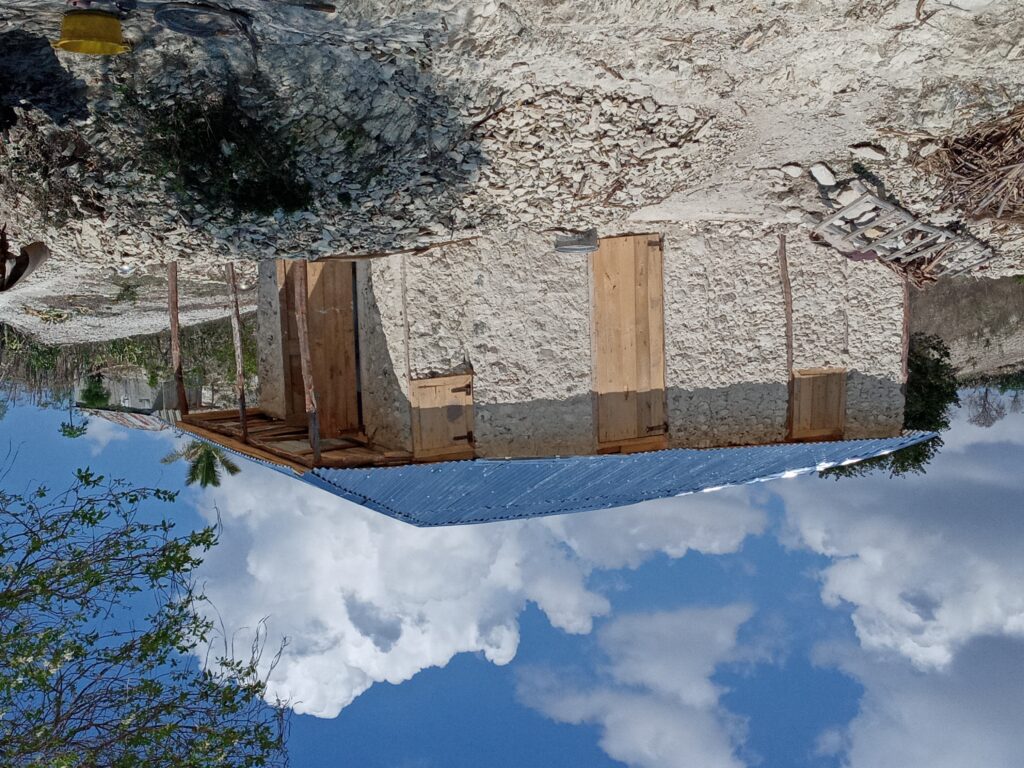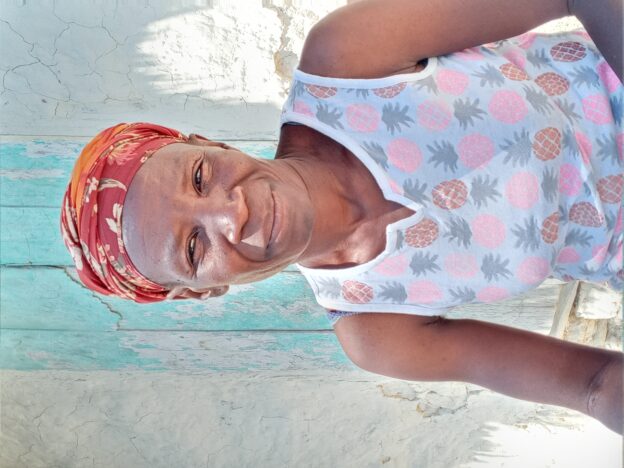When we got to Clotude’s home Tuesday morning, eight young boys were sitting in the shade cast by the house. A couple of hoes and pick-axes were strewn on the ground next to them. Clotude was in her kitchen, a small straw shack next to her pre-CLM home. She rushed out for a moment to greet us and to explain.
She had hired the eight-boy team to work in her fields. The current rate for a day of an adult man’s field labor is 250 gourds, she said, or about $2.50. But boys work for 150. So by hiring the boys, she was saving $8. The boys had just come in from their morning shift, and they were waiting for Clotude to provide their meal. She would feed them large bowls of low-grade white rice with two sauces: one made of pigeon peas and the second a thin tomato sauce seasoned with leeks and garlic and enriched with spaghetti. Then, the boys would take a long midday break before heading back into the fields for the second half of their day’s work.
It’s a lot of money for Clotude, but she’s willing to spend it. Her part of Lawa recently had its first rain in six months, and there are signs that the rainy season is ready to start. Though Lawa just had one afternoon’s rain, neighboring areas had already had several. So Clotude is in a hurry. If she plants her crops too late, they could fail to develop in time to weather the next dry spell, which is usually in June or July, and that would mean a poor harvest.
And her farming has not been the only area of her life where she’s needed cash recently. She has completed construction of her new home, and it’s been expensive. Part of the reason that it has been so expensive is that the CLM team made procedural mistakes that affected her. Case managers are supposed to guide home-construction planning closely, and they are the ones who are supposed to negotiate agreements with local builders. But in Lawa, some families were left to negotiate on their own, and builders were able to charge relatively high fees. Clotude says she agreed to pay her builder 7500 gourds, or $75, and she still owes him $45.
The house she chose to build is also larger than the CLM program was designed to support. She still owes a balance on some of the construction materials she purchased: for rocks and lumber. And because she chose to have the house built with multiple windows and doors she incurred a lot of extra expense. Windows and doors require hardwood planks and then someone to make and install them.
Clotude has made some progress through her investment in livestock, but not much. The two goats that Fonkoze gave her are now three. She still has just one sheep. Its first lamb died. But it has grown some. She also has a pig, but it isn’t doing well. There has been too little grazing because of the drought. She has a small donkey, too, which is important because she can get any fruit she can harvest to market. Buy right now she hasn’t anything to sell. She cannot establish a small commerce because she lacks cash.
All this begs a question. Where is the cash she has coming from? She has some charcoal burning in her yard, across from her old house. She’ll be able to dig it out and sell it in the next days, but it isn’t much. Certainly not enough to pay her debts. When I ask her how she makes her weekly contributions to her savings and loan association — from 50 to 250 gourds, but Clotude says she usually contributes 100 or 200 — she says she depends on gifts from friends. It is all a little hard to believe. She may have things going on that we don’t know about. It is not clear that our team has earned her trust.


Ok, so no one is sure where Clotude is getting the extra money, but I am rooting for her. It’s obvious that she has ambition and the tenacity to make things happen. It wasn’t mentioned how many children she has, but she’s keeping things moving and I wish her success. She could very well be renting out her donkey.